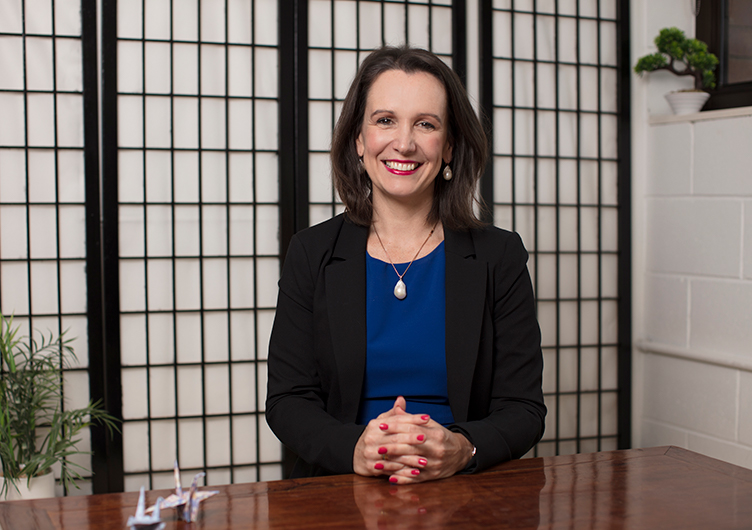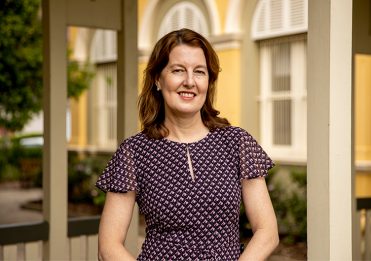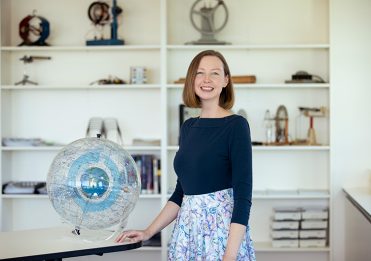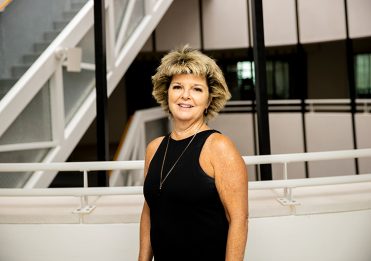Dean of Students, Mrs Emma Lowry’s passion for Japanese has been a constant in her life. Responsible for the School’s comprehensive Student Care Program, Mrs Lowry attributes her ability to understand and relate to people, to emotional intelligence skills enhanced by her language studies.
I began studying Japanese in high school and instantly connected with the subject and embraced the opportunity to learn about a different culture.
Eager to experience Japanese culture firsthand, I participated in a Rotary Youth Exchange after finishing high school. I studied at Aikoku Gakuen High School, an independent girls’ school in Tokyo for 12 months, before returning home to commence a Bachelor of Business and Arts at the University of Technology, Sydney.
I’ve always liked to push myself to experience things outside my comfort zone so I decided to study abroad again. This time, I moved to Sapporo, the capital city of the Japanese island of Hokkaido. I lived there for 12 months, and immersed myself into the lifestyle of a local university student.
After completing my degree, I moved to Brisbane and started working, but it wasn’t long before I started to miss studying Japanese, and I decided I wanted to share that passion with others. That’s when I enrolled in a Bachelor of Education at Queensland University of Technology.
I completed a practical placement at Girls Grammar with Head of Accounting, Dr Phillipa Greig, and while I wasn’t teaching Japanese it was a fantastic opportunity to learn about the School and experience the Girls Grammar community.
As luck would have it, at the completion of my placement a position became available at the School as a part-time Japanese Teacher. I applied and was appointed to the role.
In 2006, soon after I began working at Girls Grammar, Mrs Violet Ross commenced at the School. It had been many years since Girls Grammar had visited our affiliate School in Japan, and in 2007 we were fortunate to tour with just five students. The trip was very successful, and the girls returned inspired, encouraging other students to study Japanese.
In 2009, I took a leave of absence from the School so that my husband and I could participate in The Japan Exchange and Teaching Programme. The Programme aims to promote grass-roots internationalisation and provide foreign language education at Japan’s local government offices and schools.
We were placed near Sendai, northeast of Tokyo, in a small rural town with a population of approximately 5000 people. The locals held community in a very high regard—they often shared fruit and vegetables or rice they had grown with us, and would go out of their way to ensure we felt welcomed. There was a real element of trust and a slower pace of life—it was almost like stepping back in time.
We would often eat dinner at a local restaurant and start talking to the people around us, unknowingly making new friendships. I became friends with a local woman, and she would come to my house each week to teach me Japanese cooking. It was such a special and authentic experience, and not one we could have enjoyed had we not been living as part of the community.
I have many fond memories of my time in Japan, but the most memorable experiences were those within the classroom—providing children with the opportunity to learn about a different culture they wouldn’t otherwise have to the chance to do so.
Last year, two students who I taught in Japan stayed with us for a short period while studying in Australia. That was a special moment for me; it showed curiosity had been sparked within them to learn English and perhaps, I had inspired them to do things that have, and may still, change their life path. You often don’t realise it’s the little things that make a difference in people’s lives.
Learning a language has certainly developed my emotional intelligence and ability to empathise. When you’re speaking in a different language there is a space between your position as a native speaker and the target language audience. You’re always thinking about who you are communicating with and it requires you to understand and relate to other people’s perspectives. I think these skills drew me to student care.
Originally, I wanted to teach to share the love of learning a different language—learning about and embracing different cultures and different ways of thinking. Now in my role as Dean of Students, I’m not in the Japanese classroom as much but the fundamentals are the same. In Student Care, we promote a love of learning, build empathy and encourage different ways of thinking. We are building a culture—a strong community where people experience a sense of belonging.
The girls help create this culture and ensure that Girls Grammar’s long standing traditions carry on. At the completion of their schooling, girls acknowledge all involved in their education, but for many it’s often long after their time at the School that they truly appreciate their Girls Grammar experience. It is not uncommon for Heads of House or teachers to receive thank you cards years after a student has graduated. Without realising it at the time, it is the everyday interactions and relationships that make a difference, and inspire and influence a girl’s life path.





